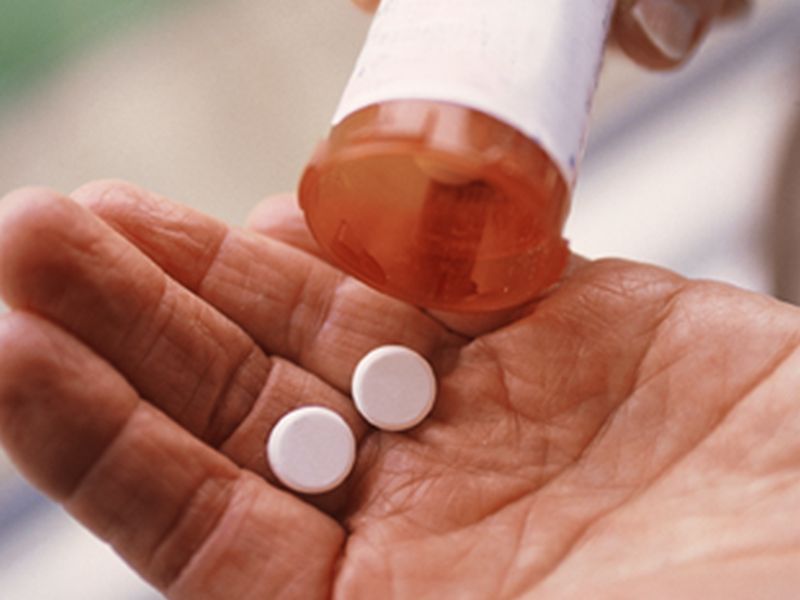MONDAY, March 1, 2021 (HealthDay News) — People taking statin drugs often complain of muscle aches, but a new study finds the medications are unlikely to be the culprit.
The results come from a trial involving patients who had quit taking their statins, or were considering quitting, due to muscle pain.
The researchers found that those aches were just as likely to flare when the patients were given a placebo (inactive pills) rather than an actual statin.
Experts said the findings add to evidence that statin patients’ muscle complaints often reflect a “nocebo” effect. That is, people expect to have muscle woes, so they do.
The pain is real, and doctors should not dismiss it, said Dr. Khurram Nasir, chief of cardiovascular prevention and wellness at Houston Methodist Hospital.
But this study, along with other recent research, “leaves little doubt,” Nasir said: The muscle symptoms are related to “taking a pill, not to taking a statin.”
Nasir, who was not involved in the research, is also a member of the American College of Cardiology’s Prevention Section and Leadership Council.
“As doctors, we shouldn’t ignore these muscle symptoms,” he stressed. “We should engage patients to have a conversation and show them data like these.”
Statins help lower LDL (“bad”) cholesterol and also appear to have anti-inflammatory effects. The medications, Nasir said, are a “cornerstone” of heart attack and stroke prevention, especially in patients at high risk (due to a past heart attack or stroke, for instance).
For the most part, the drugs are considered safe. But they can, in rare cases, cause a serious muscle disorder called rhabdomyolysis, where muscle fibers break down and release their contents into the blood, which can damage the kidneys.
That’s estimated to occur in 0.2 out of every 10,000 statins users annually. A relatively larger number — one in 10,000 — get “nasty” muscle symptoms like widespread pain, tenderness and weakness, said Dr. Liam Smeeth, the senior researcher on the new study.
That has raised the question of whether statins also cause less-serious muscle symptoms, according to Smeeth, a professor at the London School of Hygiene and Tropical Medicine, in the United Kingdom.
But muscle aches are also very common, Smeeth said, often with unclear causes.
“Seeking a cause is an understandable response,” Smeeth said. “And reading reports or hearing rumors that statins cause pain can easily lead to beliefs.”
To put the issue to a scientific test, Smeeth and his colleagues recruited 200 patients who’d recently quit their statins — or were thinking about quitting — due to muscle symptoms.
The investigators randomly assigned each patient to six two-month treatment periods, during which they either received atorvastatin (Lipitor) or identical-looking placebo pills.
Overall, the study found, patients were no more likely to report muscle symptoms while taking the statin, versus periods on the placebo. And there was no obvious difference in “intolerable” muscle symptoms: During statin periods, 9% of patients withdrew from the trial due to intolerable symptoms, while 7% withdrew during placebo periods.
After the study’s completion, two-thirds of participants said they planned to restart their statin regimen.
“We have convincingly demonstrated that while aches and pains are common, they are not caused by statins,” Smeeth said.
In the real world, he added, the decision on whether to start a statin is “clearly a personal choice.” But fear over muscle pain should not be a deterrent, Smeeth said.
When statin users do develop muscle pain, Nasir said they should not simply stop the medication. Instead, he advised they talk to their doctor. One option could be to lower the statin dose to see whether the symptoms wane, he said.
The dosage question is one limitation of this study, Nasir noted. Patients were given a 20-milligram dose of atorvastatin, which is a moderate one.
“We can’t extrapolate these findings to high-dose regimens,” Nasir said. “I think now we need similar trials of high-dose statins.”
Given the benefits of statins, Nasir said doctors should work to address any muscle symptoms that could cause patients to abandon the drugs.
“The bottom line is, the symptoms they’re feeling are real,” he said.
The study, published online Feb. 24 in the BMJ, was funded by the U.K. government.
More information
The American Heart Association has more on cholesterol medications.
SOURCES: Liam Smeeth, MBChB, PhD, MSc, professor, clinical epidemiology, London School of Hygiene and Tropical Medicine, United Kingdom; Khurram Nasir, MD, MPH, chief, cardiovascular prevention and wellness, Houston Methodist Hospital, and member, Prevention Section and Leadership Council, American College of Cardiology, Washington, D.C.; BMJ, Feb. 24, 2021, online
Copyright © 2026 HealthDay. All rights reserved.

